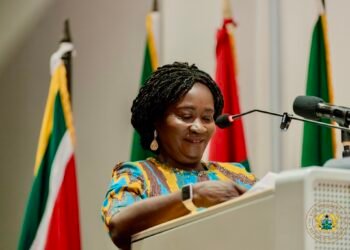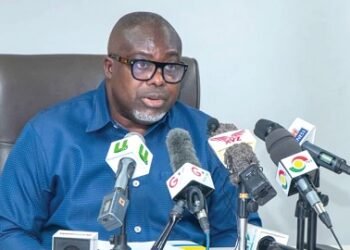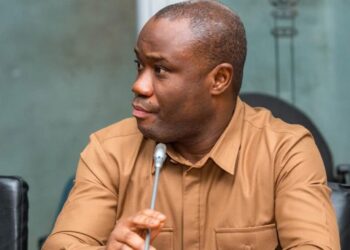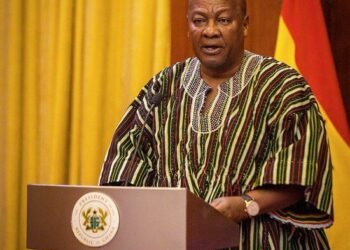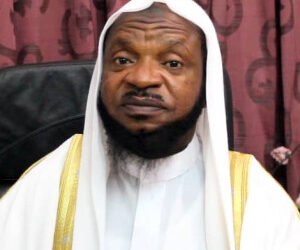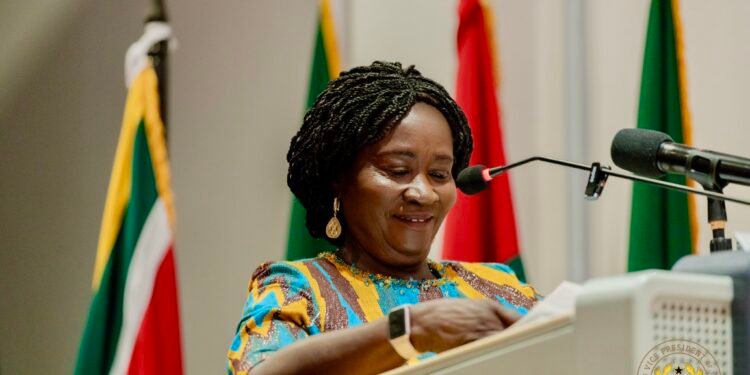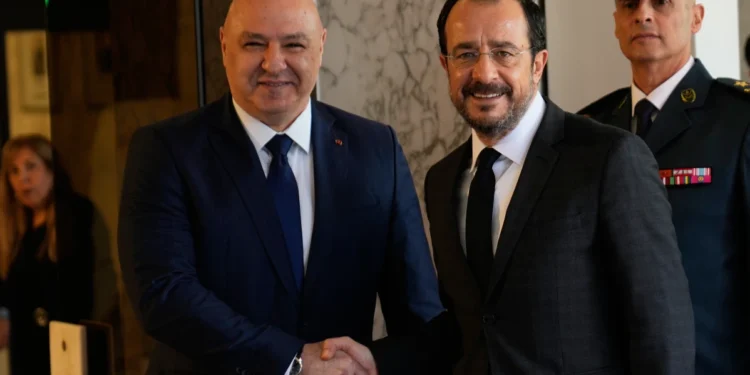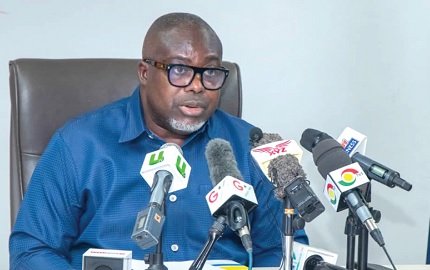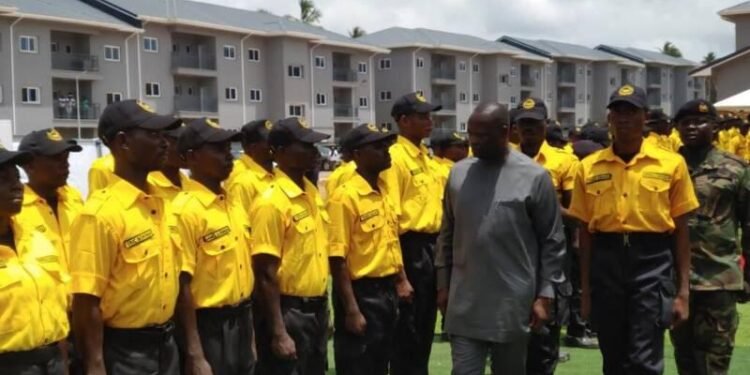Ghana’s renewed push for deeper continental and international cooperation against violent extremism has taken centre stage at the opening of the 7th AU-EU Summit in Luanda.
Vice President Professor Naana Jane Opoku-Agyemang made a clarion call for sustained support and structured dialogue to reinforce the African Peace and Security Architecture under the AU’s Agenda 2063.
Her appeal, presented before Heads of State and senior delegates from both unions, underscored Ghana’s growing concern over the surge of extremist activities across West Africa and the urgent need for pragmatic, community-driven solutions to restore stability.
“Extremist networks exploit poverty, exclusion and shrinking natural resources,” the Vice President said, warning that extremist networks continue to weaponise poverty and exclusion to destabilise communities, eroding trust in governance and threatening regional cohesion.
She argued that the West African region’s economic promise can only be fully realised when insecurity is tackled at its roots. One of her key cautionary messages came in her reflection on how vulnerable communities become targets for exploitation, noting that progress depends on addressing underlying socio-economic grievances.
“West Africa contains its fair share of hope. This is a region of dynamic economies and breathtakingly creative youthful energy. But it also faces great risks. The way forward demands unity, a focus on the root of insecurity, and community-based peace building. Ghana proposes a call for a meeting on violent extremism”
Vice President Professor Naana Jane Opoku-Agyemang

Her comments resonated strongly within a summit that coincides with the 25th anniversary of the AU-EU Partnership, a milestone moment for reassessing shared priorities around peace, development and security cooperation.
She stressed that Ghana’s position favours a collaborative framework that binds national strategies with regional commitments, arguing that a fragmented approach would only embolden destabilising forces.
Her announcement of Ghana’s proposal for a meeting dedicated exclusively to violent extremism, signalled Accra’s readiness to champion regional consensus-building.
Reparations and Historic Justice
Beyond security, the Vice President reaffirmed Ghana’s commitment to achieving global recognition of the transatlantic slave trade as one of the gravest crimes against humanity.
She called on EU Member States to support Ghana’s planned 2026 motion at the United Nations, aligning the initiative with the AU’s declaration of 2025 as the Year of Reparations. Her message was direct and uncompromising, reinforcing Ghana’s leadership role on the continent in advancing historic justice.
“The African Union has declared 2025 the Year of Reparations. Ghana, as the AU champion of reparations, is preparing to table a UN resolution recognizing the transatlantic slave trade as among the gravest crimes against humanity. We urge our European partners to join us in this endeavor as co-authors of a just future”
Vice President Professor Naana Jane Opoku-Agyemang

The call reflects years of diplomatic groundwork and increasing continental momentum aimed at addressing the historical injustices that continue to shape global inequality. Ghana’s position, she noted, is rooted in moral responsibility and a shared desire for a future built on accountability.
Prof. Opoku-Agyemang also outlined several immediate priorities the Mahama-led administration hopes to advance with EU partnership. These include securing an EU waiver for offshore patrols, replacing essential components of the Kpong hydro-dam, and obtaining support for the Damongo Water Project in the Savannah Region.
She presented these as critical interventions to strengthen infrastructure, expand access to essential services and reinforce national resilience. The Vice President anchored her appeal in Ghana’s broader development agenda while highlighting moments of diplomatic alignment already achieved.
She acknowledged the solidarity shown by European partners at the UN Human Rights Council, pointing to it as evidence that mutual respect and shared values remain the foundation of the AU–EU relationship.
This spirit of partnership was captured in another of her reflections, invoking the enduring wisdom of former UN Secretary-General Kofi Annan: “We will not enjoy development without security. We will not enjoy security without development.”
As she concluded her address, she urged both unions to allow these principles to guide their deliberations, emphasising that Africa’s peace and prosperity depend on deliberate, coordinated and sustained international cooperation.

The Luanda Summit, running from November 24 to 25, offers a significant platform for refreshing commitments between Africa and Europe.
With violent extremism rising, economic pressures mounting and global geopolitical shifts reshaping alliances, Ghana’s interventions underscore the need for a resilient, future-oriented partnership.
The Vice President’s message was clear: Africa is ready to lead on solutions, but meaningful progress will require unity, honesty and shared responsibility from both continents.
READ ALSO: Pakistan Accused Of Launching Airstrikes In Eastern Afghanistan




